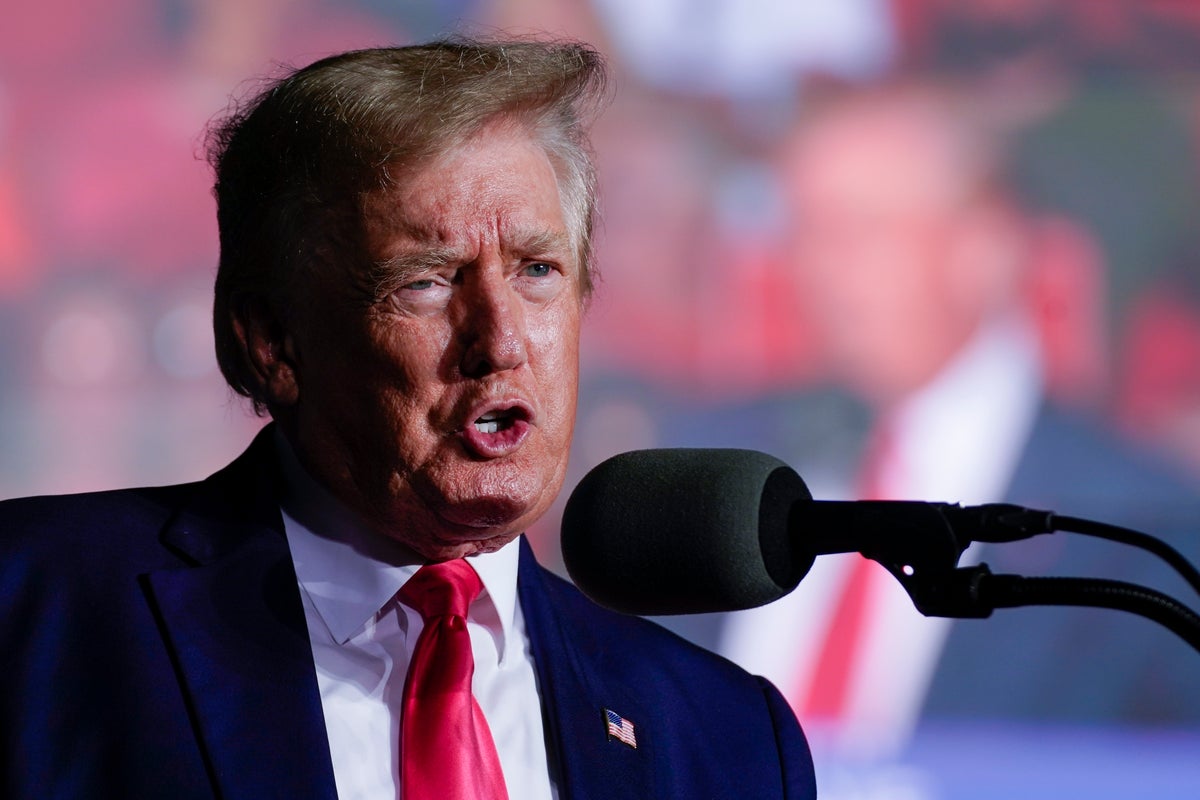
Former president Donald Trump has demanded that a Florida court name a third-party special master to review the boxes of documents seized from his Florida home, but he — and the general public — may have to wait some time before finding out more about what he was keeping in his Mar-a-Lago storage room.
According to a receipt provided to Mr Trump’s attorneys after the 8 August search of his property, FBI agents recovered roughly 20 boxes, binders containing photos, one handwritten note and the official paperwork granting a presidential pardon to Roger Stone. Mr Stone is a GOP operative and provocateur who has been a longtime ally of and adviser to the ex-president.
The boxes contained 11 separate sets of classified documents, including documents marked as top secret and the set of “Top Secret/Sensitive Compartmented Information” documents, the latter of which would have ordinarily required to be viewed in a secure facility known as a Scif.
Another 15 boxes turned over to the National Archives and Records Administration by Mr Trump in January contained documents which Nara officials found to bear markings designating them “as classified national security information, up to the level of Top Secret and including Sensitive Compartmented Information and Special Access Program materials”.
In a lawsuit against the government filed late Monday, Mr Trump asked for the court that issued the warrant to search his home to appoint a “special master” — an independent monitor — to go through each and every document seized by the FBI to determine whether any are covered by various privileges, including attorney-client privilege and executive privilege.
But it’s unlikely that the court will take such a step, in part because it has been more than two weeks since the search warrant was executed, which means the Department of Justice’s “filter team” tasked with reviewing the records has been hard at work for some time.
What is a filter team?
According to the DoJ’s Justice Manual, a filter team is used to conduct a “limited review of arguably privileged material to ascertain whether the material is covered by [a] warrant”. Sometimes the group is referred to a “taint team”.
In Mr Trump’s case, the search warrant authorised FBI agents to find and seize “any physical documents with classification markings, along with any containers/boxes (including any other contents) in which such documents are located, as well as any other containers/boxes that are collectively stored or found together with the aforementioned documents and containers/boxes”. Additionally, it allowed federal officials to obtain “information, including communications in any form, regarding the retrieval, storage, or transmission of national defense information or classified material”, any “government and/or Presidential Records” created during Mr Trump’s term and “evidence of the knowing alteration, destruction, or concealment of any government and/or Presidential Records, or of any documents with classification markings”.
Once agents take possession of items to be seized, a separate team — the filter team — is given the task of combing through each individual document to determine whether any privilege applies, or whether the document was covered by the warrant.
This process has already resulted in the return of some items to Mr Trump, specifically the diplomatic passport he is entitled to as an ex-president (plus two expired passports).
Because the filter team won’t be involved in prosecuting any case arising out of the search, they can safely review material that could be covered by attorney-client privilege and flag it for return to Mr Trump without jepoardising any future prosecution of the ex-president.
Mr Trump’s lawyers have claimed that procedure isn’t good enough, in part because without knowing the identities of the FBI agents involved in the search or filter team, he cannot know whether any of them were involved in previous investigations into him or his associates.
They also claim a special master “is needed to preserve the sanctity of executive communications and other privileged materials”.
But according to Mark Zaid, a veteran Washington DC attorney who specialises in national security cases, executive privilege isn’t an issue because Mr Trump stopped having any part in the executive branch when his term expired on 20 January 2021.
“You don't need a special master to decide that … because if the executive branch has decided it's privileged, Trump is irrelevant,” he said.
In fact, Mr Trump’s attorneys have already been told that he can’t use executive privilege to shield anything from the executive branch, which includes the FBI and Department of Justice.
In a letter to Trump attorney Evan Corcoran released by a conservative journalist who is Mr Trump’s representative to the National Archives, Archivist of the United States Debra Wall said such a question “is not a close one” because in the case of documents taken from Mr Trump that are White House records, what the FBI is reviewing is already government property.







